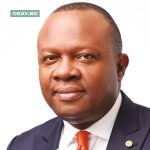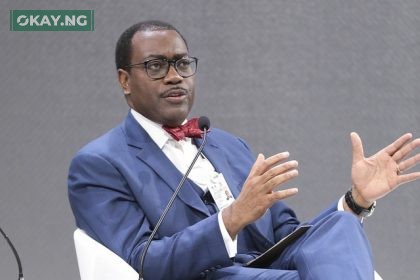The Central Bank of Nigeria (CBN) has commenced the profiling of chairmen and signatories to bank accounts for the nation’s 774 local government areas (LGAs), a move signalling potential progress toward local government autonomy in Nigeria. This initiative, as revealed by Kofo Salam-Alada, Director of Legal Services at the CBN, is a crucial step towards ensuring financial accountability, a cornerstone of effective local governance.
However, the Association of Local Governments of Nigeria (ALGON) has stated they have yet to receive official communication from the apex bank regarding the account opening process, creating a layer of uncertainty around the timeline for full implementation.
This development follows a landmark Supreme Court ruling on July 11, 2024, affirming the financial autonomy of LGAs and prohibiting state governors from controlling funds allocated to these councils. The court mandated the Accountant-General of the Federation to directly disburse funds to LGA accounts, declaring the previous practice of state control unconstitutional. Eight months later, the promise of financial autonomy remains largely unrealized.
Salam-Alada explained that the CBN’s profiling exercise is a standard “Know Your Customer” (KYC) procedure. “Anyone who will be a signatory to the account must be profiled,” she stated. The CBN is collaborating with the Accountant-General’s office and has communicated with the LGAs, urging ALGON to encourage its members to engage with the CBN at the local level. Salam-Alada assured that accounts will be operational within 48 hours of completed documentation. “We are using this opportunity to call on the 774 local government chairmen to come forward for their documentation. No account can be operationalised without the prerequisite Customer Due Diligence,” she emphasized.
However, Sam Akala, ALGON’s representative at a recent state-of-the-nation discourse on strengthening local government autonomy, contradicted the CBN’s claim. “I cannot confirm that such communication has been received officially,” he stated, though he affirmed ALGON’s readiness to embrace its new role in grassroots development.
Read Also: FG Keystone Bank TakesOver: Stability, Scrutiny, and the Road Ahead for Banking Sector Reform
This discrepancy highlights the complex interplay between different levels of government and the challenges in implementing such a significant shift in governance. As citizens, we often find ourselves caught between the promise of progress and the realities of bureaucratic hurdles. While the CBN’s initiative is a welcome step, the lack of clear communication with ALGON raises questions about the coordination and efficiency of the implementation process.
Lateef Fagbemi (SAN), the Attorney General of the Federation and Minister of Justice, represented by Tijjani Gazali, acknowledged the delays and attributed them to the need to finalize the CBN process. He indicated that the LG autonomy implementation committee, comprising representatives from the Federal Government, ALGON, and the Nigerian Governors’ Forum, is finalizing a framework for direct allocation payments to LGAs. “The committee is expected to complete its mandate any time from now and present its recommendations to Nigerians,” Gazali stated, reiterating President Bola Tinubu’s administration’s commitment to LGA autonomy. He also condemned the continued practice of some governors dissolving democratically elected local councils, calling it “tantamount to treason.”
Mazi Afam Osigwe, President of the Nigerian Bar Association (NBA), emphasized the critical importance of local government autonomy. “There must be democracy at the local government level,” he warned. “All other tiers of government must allow the LGs to breathe. If we fail to get it right at the LG level, we may be setting the stage for a greater calamity.”
Hakeem Ambali, President of the National Union of Local Government Employees (NULGE), expressed his disappointment with the delayed implementation of the Supreme Court ruling. “The failure to enforce this judgment is a huge disregard for the rule of law,” he stated. “It is highly disappointing that saboteurs have continued to fight against the implementation of a landmark Supreme Court judgement which allows for financial autonomy for local governments.”
The ongoing profiling exercise by the CBN, while a positive sign, is just one piece of the puzzle. Effective local government autonomy requires not only financial independence but also a commitment from all stakeholders to uphold the rule of law and prioritize grassroots governance. The future of local governance, and indeed the overall development of Nigeria, hinges on the successful implementation of these reforms.












